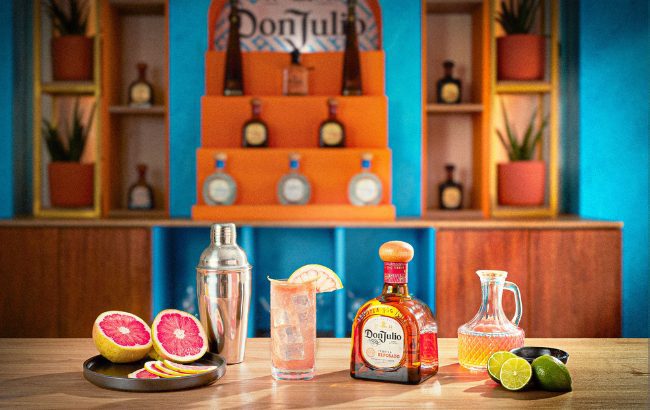Diageo doubles down on defence of ‘100% agave’ Tequilas
By Nicola CarruthersDrinks giant Diageo has filed a motion to dismiss a New York class action mirroring a Florida suit, arguing the allegations against Don Julio and Casamigos are “baseless” and built on “unvalidated testing.”

Last week, Diageo filed a motion to dismiss an “implausible” class action lawsuit in Florida that claimed its Tequilas are falsely marketed as ‘100% agave’.
The Florida lawsuit, filed by Nabil Haschemie on 15 May, was described by Diageo as a “copycat” of a New York filing, which was submitted 10 days earlier.
On 5 May, a class action lawsuit was filed against Diageo North America alleging that its Don Julio and Casamigos brands contain non-agave alcohol.
Consumers Avi Pusateri and Chaim Mishulovin, and restaurant Sushi Tokyo, filed the class action lawsuit against Diageo North America with the US District Court of the Eastern District of New York.
Diageo has now filed to dismiss this New York action, which additionally names eight other plaintiffs: Barry Wilhelm, Shannon Wilhelm, Tracy Cole, Nelson Njoroge, Antoine Doxon, Tiease Holmes, Dyonnesha Woolfolk and Troy Reece.
Diageo made a similar statement to the earlier Florida filing, calling the allegations “implausible, lacking legal and logical merit”.
The company reiterated its previous comment: “As previously stated, we are confident in our defence as all bottled Casamigos and Don Julio Tequilas labelled as ‘100% agave’ are just that – proudly made from 100% Blue Weber agave.”
In the motion to dismiss filing, Diageo argues that the “manufactured nature of this litigation is obvious”.
Diageo said: “The amended complaint is a Bermuda Triangle of pleading: in one corner, plaintiffs allege purchases of more than 73 bottles of Tequila; in another, they vaguely allege – without any supporting allegations to establish plausibility – certain ‘testing’; and in the third, they allege partial and unintelligible results from five unidentified samples.
“Rather than draw any connecting lines, plaintiffs fill the space in between with a swirl of conclusory allegations and baseless inferences.”
Diageo expressed its disbelief regarding the plaintiffs’ claim that all 73-plus bottles of Diageo-owned Tequila had been sampled or tested.
The company pointed out that only five samples were returned with “inconsistent results” and were likely to have been “cherry-picked”, which it likened to an “election with 73 precincts, where plaintiffs polled only five, examined a single ballot in each, and then declared Dewey defeats Truman”.
The plaintiffs said they had conducted “initial laboratory testing” of Diageo’s Tequilas through the Additive Free Alliance (AFA) in 2024.
Furthermore, Diageo pointed out that the plaintiffs “vaguely allege that they subsequently commissioned testing and that there was ‘subsequent independent testing’” but with no information provided in either case.
Grover Sanschagrin founded the AFA last year to conduct independent evaluations of Tequila brands through laboratory and sensory assessments to see if they contain additives.
Diageo pointed out that Grover and his wife, Scarlet Sanschagrin, are facing criminal charges in Mexico and have been “sued in the US over their making and spreading of false statements about Tequila”.
Diageo also emphasised that the AFA conducts no testing of its own and has no laboratory, instead relying on an unnamed lab in Europe.
The AFA is currently facing a lawsuit in Florida from Tequila’s regulatory body, the Consejo Regulador del Tequila. They have clashed over how Tequila should be certified.
In Mexico, the Sanschagrins have been accused of “health-related crimes due to the manufacture and sale of homemade alcohol without sanitary or administrative permits”.
Grover Sanschagrin has denied the accusation. He told The Spirits Business in May that this was related to the “well-publicised raid of our home in March 2024”, which caused the couple to flee to the US.
‘Insufficient’ testing
Regarding the New York filing, Diageo said the accusers “rely solely on nonsensical and insufficiently pled ‘testing’ allegations – five partial, unvalidated results from unknown samples, by someone they fail to identify, performed somewhere undisclosed at some indeterminate time”.
In the court document, Diageo contended: “[This case] is just the latest effort by self-interested actors seeking to use the federal courts’ scarce resources to advance their personal agenda and make categorically false and disparaging accusations under the cover of a publicly filed complaint.”
The drinks firm also alleged that the complaint was based on “nothing more than rumour, speculation and conjecture, as well as improper inferential pleading, and fails at every turn”.
The company also highlighted that the complainants did not “allege any flaw or vulnerability in Diageo’s meticulous and rigorously monitored Tequila-making process, any failure of internal controls, any disclosure, investigation, or judicial finding, nor any whistle-blower – among the hundreds if not thousands of people involved in making Casamigos and Don Julio Tequilas – to support their claim”.
Related news
Diageo and Starward end partnership
